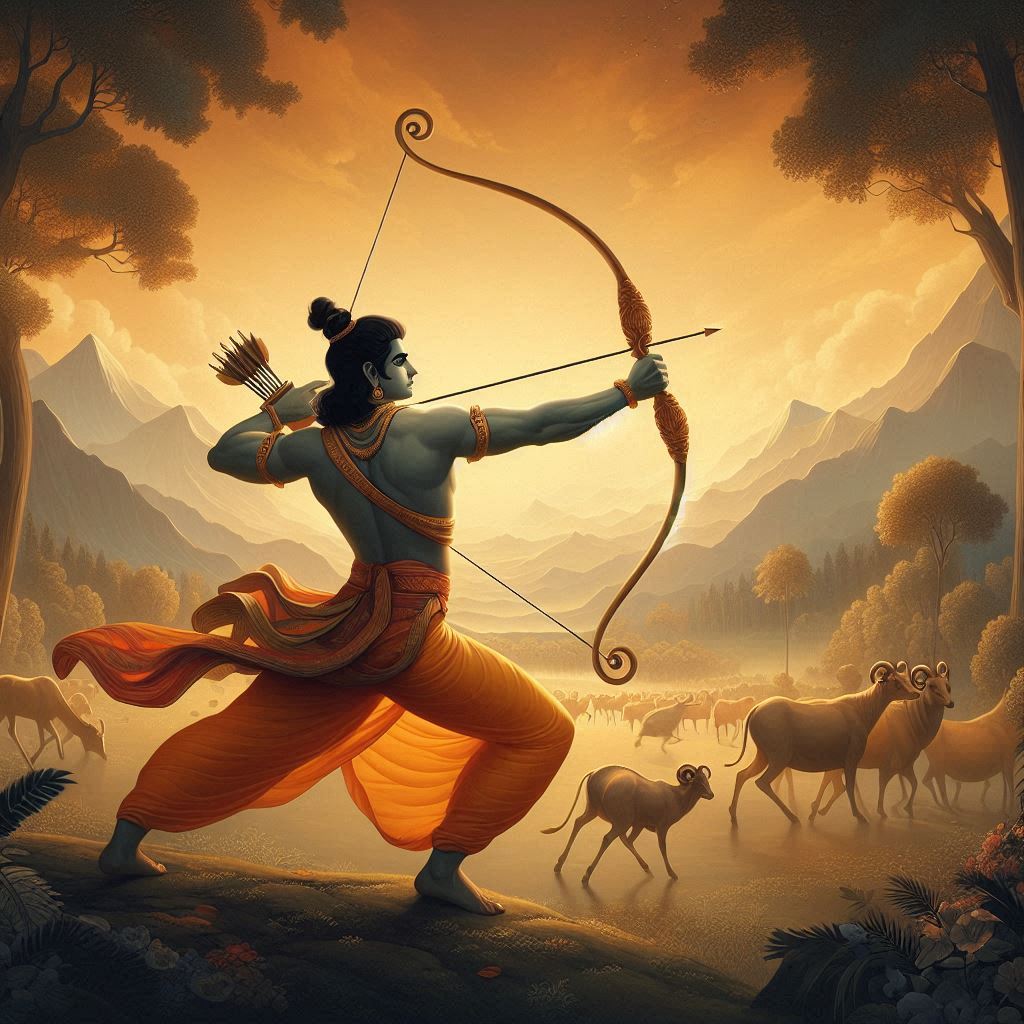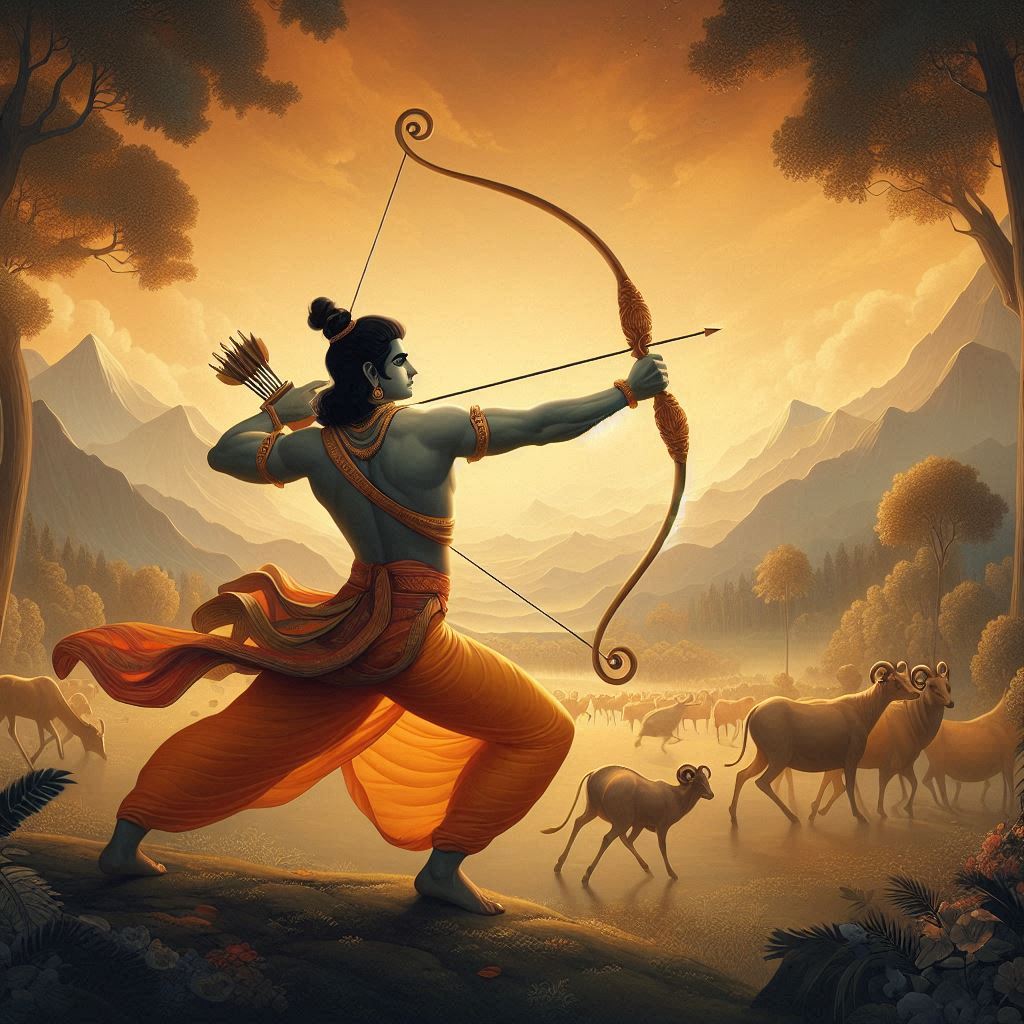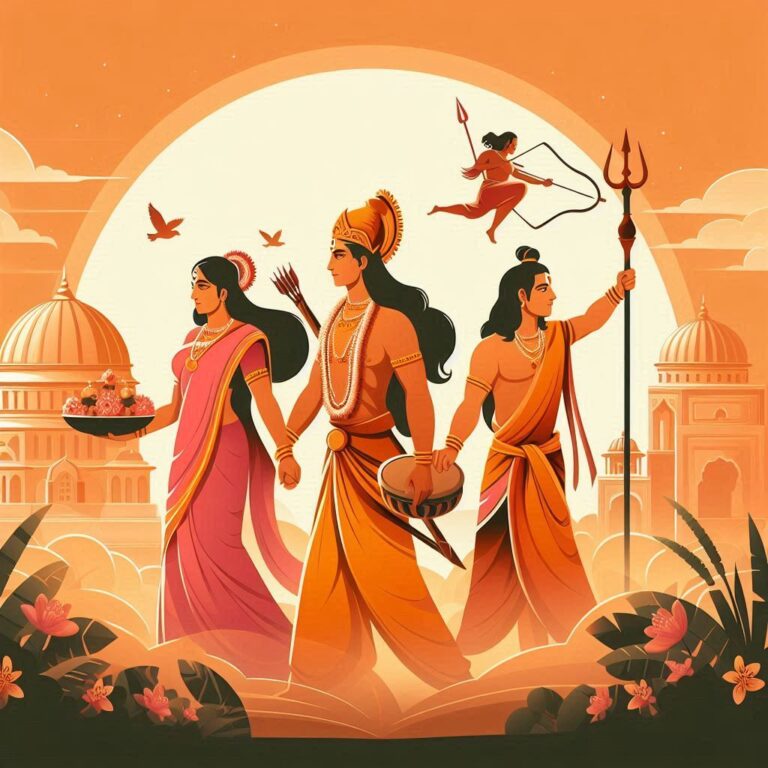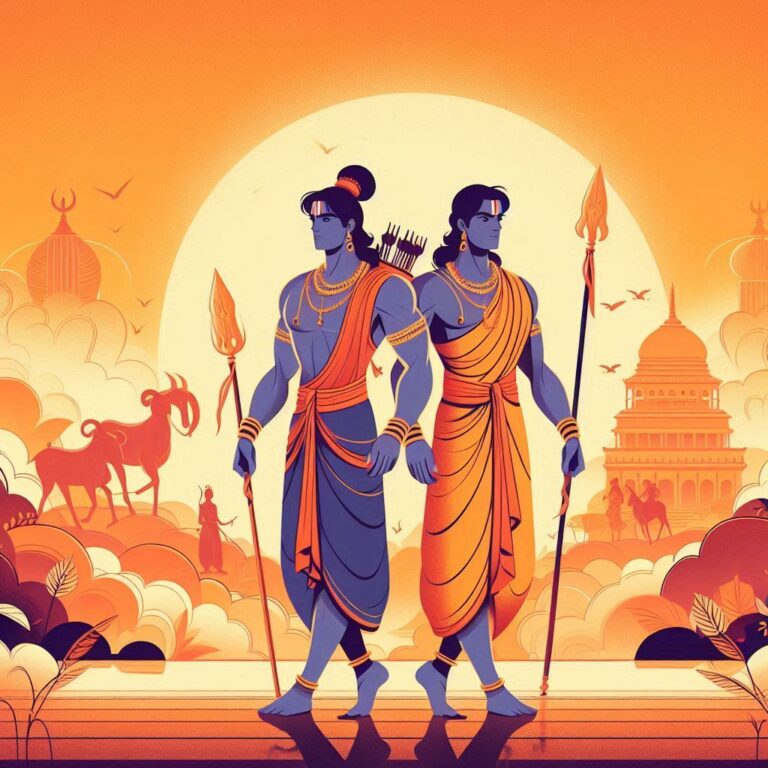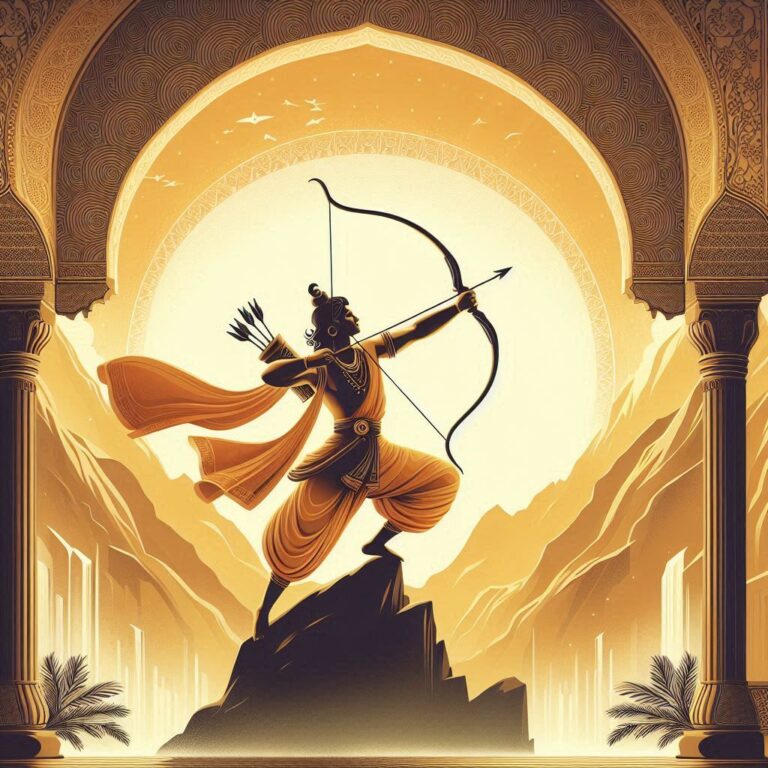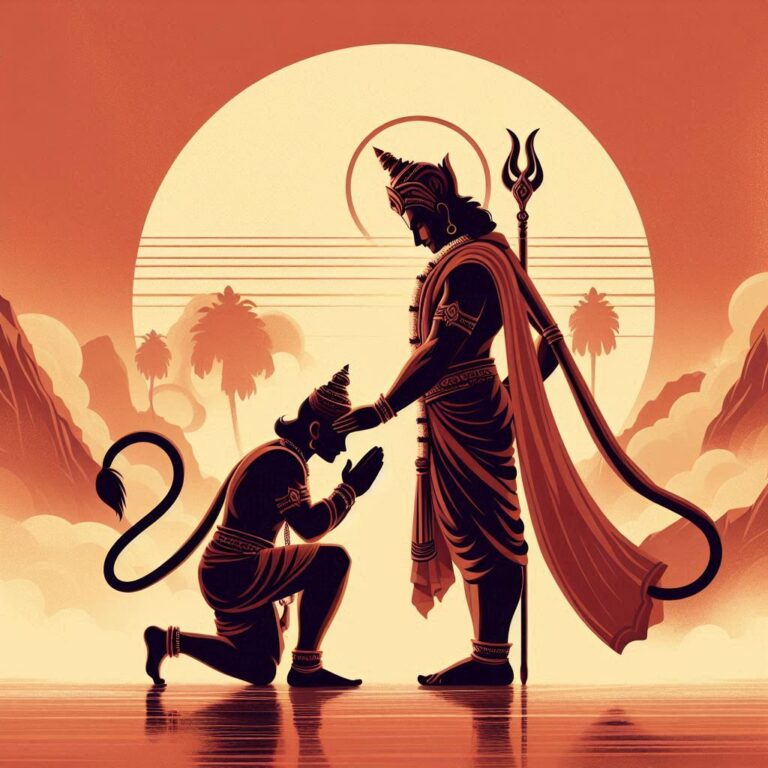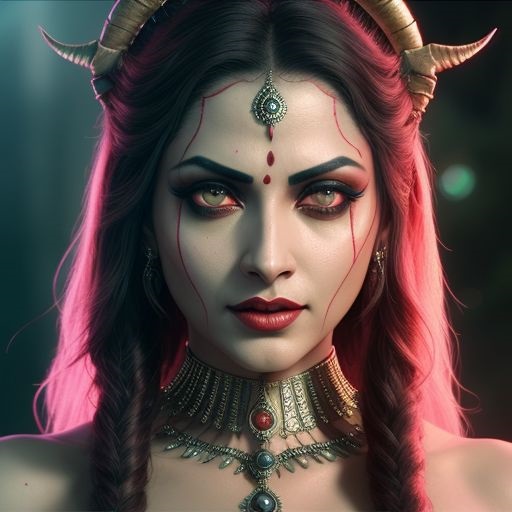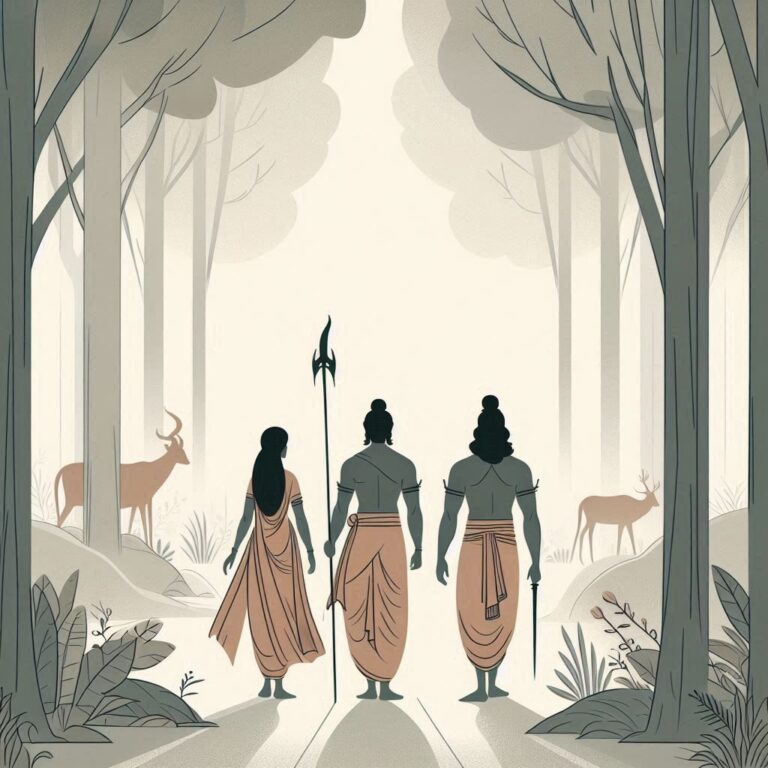Dasharatha’s Emotional Turmoil: The Dilemma of a King
Dasharatha’s Dilemma: A King’s Emotional Turmoil
The story of Dasharatha, the revered king of Ayodhya, is one of heartache, sacrifice, and the complexities of dharma (duty) that resonate through the ages. Who can forget the emotional turmoil that plagued this great monarch, caught between his love for his son and the demands of his kingdom? If you’re intrigued by ancient tales that still hold relevance today, gather around as we journey through the depths of Dasharatha’s dilemma!
The Context of the Dilemma
Before diving into the emotional chaos faced by Dasharatha, let’s set the stage. Dasharatha is a character from the epic Ramayana, a king known for his justice, valor, and adherence to dharma. However, beneath this noble exterior lies a man grappling with fate, family, and the heavy burden of kingship. As the narrative unfolds, we witness an emotional clash that puts his paternal love to the test.
The Prophecy and the Promise
When Dasharatha’s first wife, Kausalya, gave birth to Rama, it seemed like the perfect beginning to a life filled with joy. But, as fate would have it, a prophecy dictated his future. A sage had foretold that one of his sons would be his downfall, leading to a break in his kingdom. In a bid to avert this disaster, Dasharatha, as a dutiful king, made a promise to his second wife, Kaikeyi, following a battle where she had saved his life.
Here’s where the emotional turmoil began to brew. Kaikeyi demanded that her son, Bharata, be crowned instead of Rama, throwing Dasharatha into a storm of conflict. Could he sacrifice his firstborn son for the greater good of his kingdom? What would the consequences be for a king torn between love and responsibility?
Ancient Teachings: Dohas and Shlokas
To better grasp this intricate conflict, let’s reflect on some dohas and shlokas that convey the essence of Dasharatha’s predicament.
दोहा
कान्ता लक्ष्मण की भांती, रखिया हजूर।
धर्मराज के धन्य दवे, जानिये महाबीर।
Dharma raaj ke dhanya dave, janiye mahaabeer.
(Translation: In connection with my beloved, like Lakshmana, do understand the great dharma of the king, who is revered, indeed.)
Here, Dasharatha is reminded of the weight of his responsibilities and the noble path he must follow. But what is ‘dharma’ if it goes against the very fabric of familial love?
श्लोक
सर्वगुणसम्पन्नं रामं राजीवलोचनम्।
लक्ष्मणं मातृवत्सलम्।
Sarva-guna-sampannam Raamam Rajeevalochanam.
(Translation: Rama, adorned with all virtues, has eyes like a lotus, while Lakshmana expresses the tenderness of a son.)
This captures Rama’s ideal character, contrasting it with the painful decision Dasharatha must make regarding his son’s fate.
The Heart-Wrenching Decision
Dasharatha’s heart is torn. He loves Rama deeply and has raised him to be the epitome of virtue. On the flip side, adhering to Kaikeyi’s demand would mean ensuring the stability of his realm. It’s reminiscent of being caught between a rock and a hard place, wouldn’t you agree?
The Emotional Convulsion
The emotional convulsion within Dasharatha is palpable. He tries to grapple with notions of selfishness, responsibility, and loyalty. How can a father cast away his beloved son? And yet, how can a king neglect the very foundation of his kingdom? The tension between his personal feelings and his public duties pushes him to the brink.
दोहे
प्रेम भक्ति आ त्याग स, रे धीरज धन्य।
राजा कुशलता में भृता, खोया मानु माथा।
Prem bhakti aa tyag sa, re dheera dhanya.
(Translation: Love, devotion, and sacrifice guide the noble; yet the king, in skill, loses his honor.)
This powerful assertion resonates with anyone who has faced a difficult choice where both options feel painfully wrong. It illustrates Dasharatha’s internal struggles, providing a metaphor for the human experience of dealing with moral dilemmas.
The Fallout of His Decision
As Dasharatha wrestles with his choice, the fallout becomes inevitable. He struggles to maintain his composure, battling feelings of helplessness as he banishes Rama into exile. The ramifications are colossal; the love of a father clashes with the duties of a king, leading not only to personal anguish but a chain of events that alter the course of history.
Many of us can relate to this feeling—when obligations cloud our hearts and prevent us from making the choices we yearn for. Have you ever felt torn between responsibilities to your family and a fierce desire to follow your own path? Dasharatha’s turmoil encapsulates this universal struggle.
Analyzing Dasharatha’s Emotions
It’s fascinating to dissect Dasharatha’s emotions further. His character exudes a sense of deep sorrow, regret, and ultimately, acceptance. As a scholar proficient in the wisdom of ancient teachings, it’s crucial to look at how Dasharatha epitomizes the ideal of accepting one’s fate.
The essence of his character evolves through the pain he endures. It shines a light on the power of bonds that not only connect blood relatives but also expose the vulnerabilities of the human heart. How often have we chosen our duties over our desires, only to face unintended consequences?
Lessons from Dasharatha’s Dilemma
Dasharatha’s emotional turmoil offers countless lessons on leadership, love, and loss. Although his actions may seem like the ultimate sacrifice, they reveal complexities inherent in our lives.
Key Takeaways
- Balancing Personal and Professional Life: The difficulty is real; figuring out how to juggle personal aspirations and responsibilities is a challenge for everyone.
- The Pain of Sacrifice: Sometimes, what you feel is right may not align with your duties or the expectations placed upon you by others.
- Accepting Fate: Just as Dasharatha learns to navigate his destiny, it’s a reminder that acceptance can often lead to peace in turmoil.
A Reflection on Relationships
Ultimately, Dasharatha’s dilemma invites us to contemplate the nature of relationships. The connections we forge dictate our emotional landscapes and the ripples of pain or joy we experience.
श्लोक
पुत्रा माता, पिता परम, वरं प्रीतिसंयुक्तम्।
ज्ञानेन हीना सर्व के, धर्मो हि तनाविकृतम्।
Putra mata, pita parama, varam preeti-samyuktam.
(Translation: The bonds of parent and child are intertwined with love; devoid of wisdom, the duty becomes bereft of meaning.)
This captures the essence of familial bonds and how love influences our actions, despite the bigger picture we often must consider.
Conclusion
In conclusion, Dasharatha’s dilemma is an age-old tale that reflects universal truths about human emotions, responsibilities, and sacrifices. His story is shaped by love and burden, offering deeper insights that resonate with people of all ages.
Like Dasharatha, we all face situations that test the limits of our hearts and the strength of our convictions. Reflecting on these moments not only enriches our understanding of ancient texts but also provides us a lens through which to examine our own trials and tribulations in life.
FAQs
-
What was Dasharatha’s main dilemma?
- His main dilemma was the choice between fulfilling his son Rama’s rights to the throne or adhering to Kaikeyi’s demands for Bharata, showcasing the conflict between personal love and duty.
-
What are some significant teachings from Dasharatha’s story?
- Dasharatha teaches us about the importance of balancing personal desires and duties while also highlighting the pain that often accompanies sacrifice.
-
How does Dasharatha’s story relate to modern life?
- His struggles mirror the everyday conflicts many face when trying to balance familial responsibilities with personal ambitions.
-
What emotional qualities does Dasharatha exhibit throughout his journey?
- He exhibits love, sorrow, regret, and ultimately acceptance, illustrating the complexities inherent in human emotion.
-
What can we learn from Dasharatha about leadership?
- Effective leadership involves making tough decisions, often sacrificing personal desires for the greater good, and understanding that such choices bring emotional challenges.
What resonates most with you about Dasharatha’s emotional journey? We all have our own dilemmas—let’s learn and grow from them!
